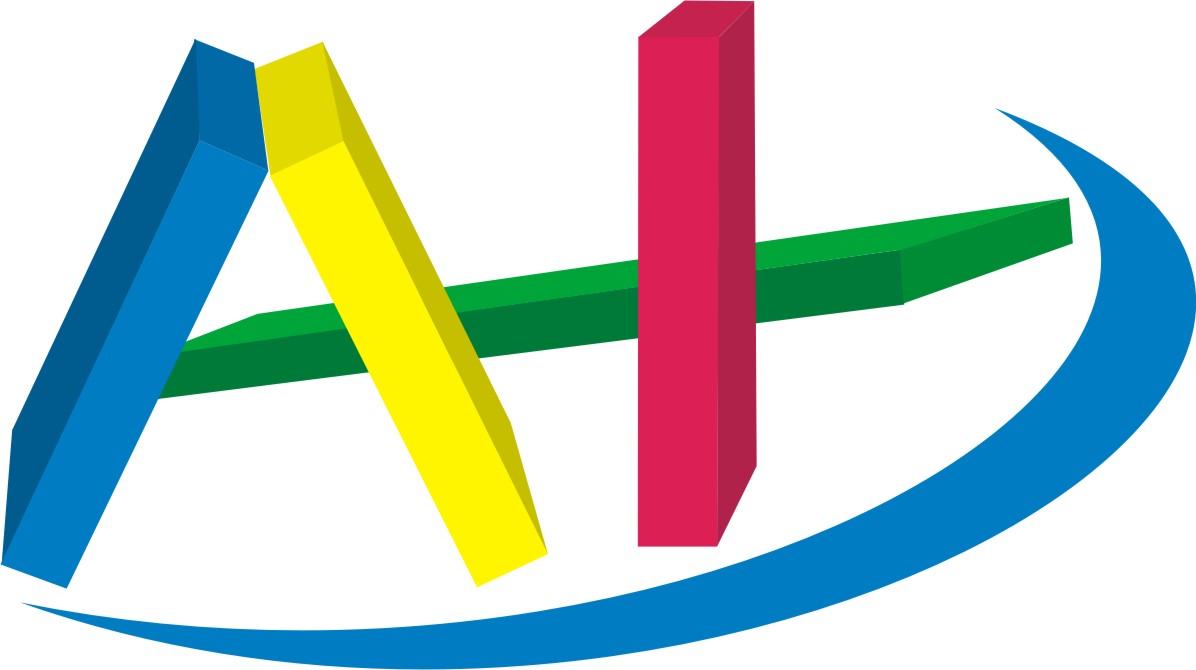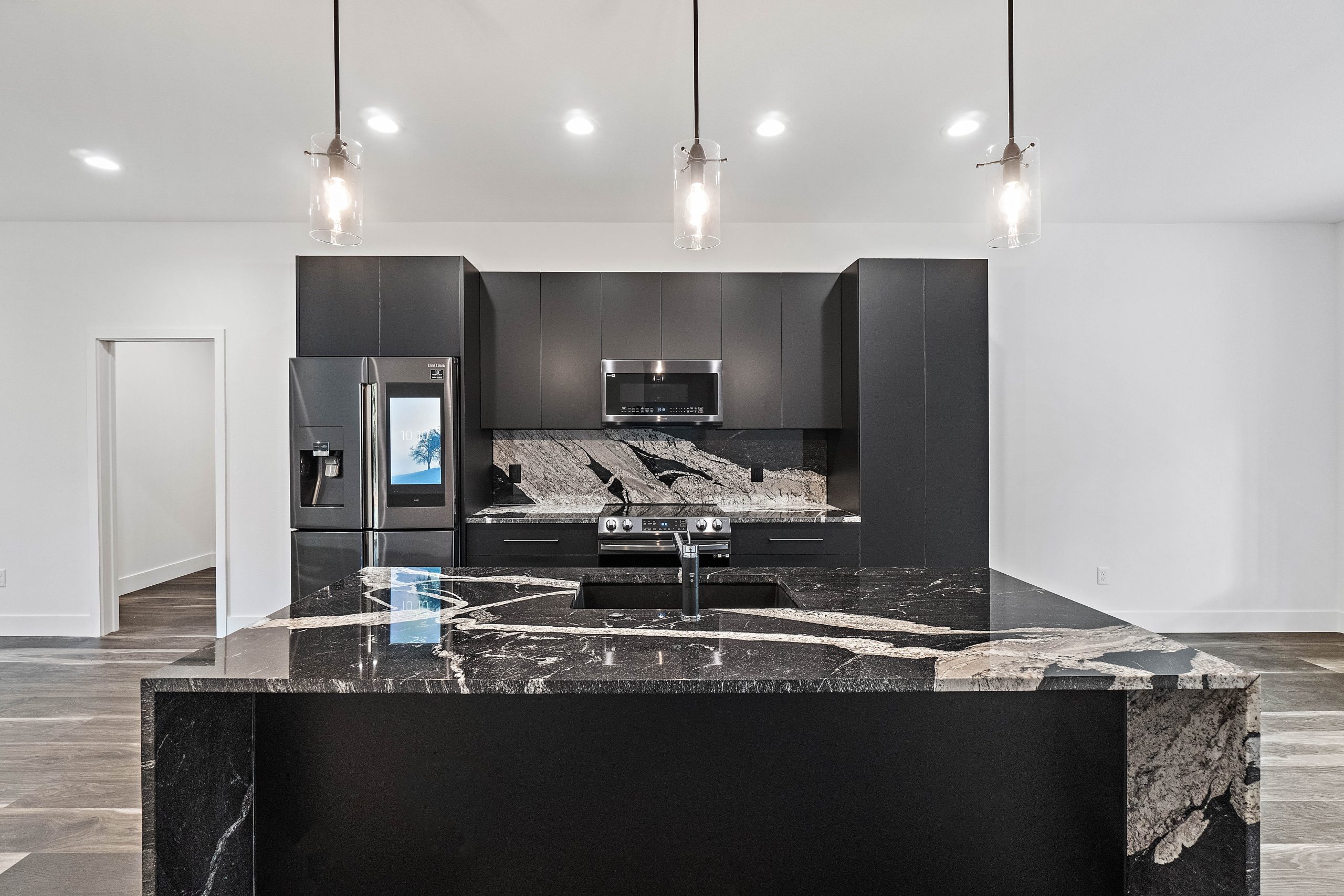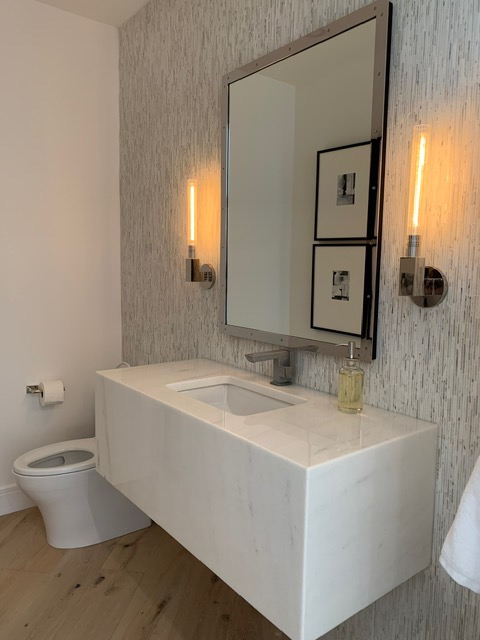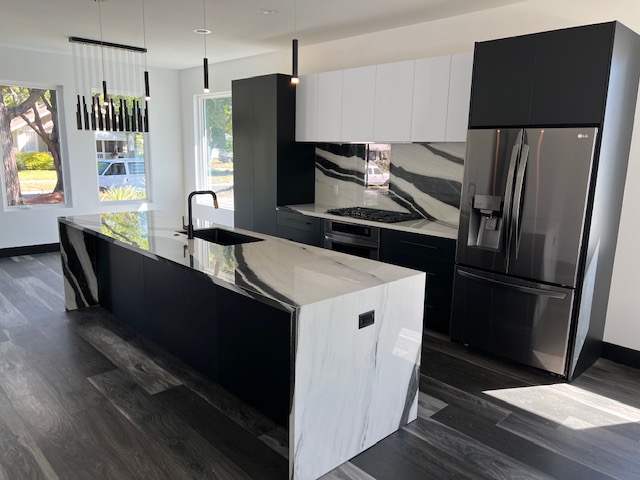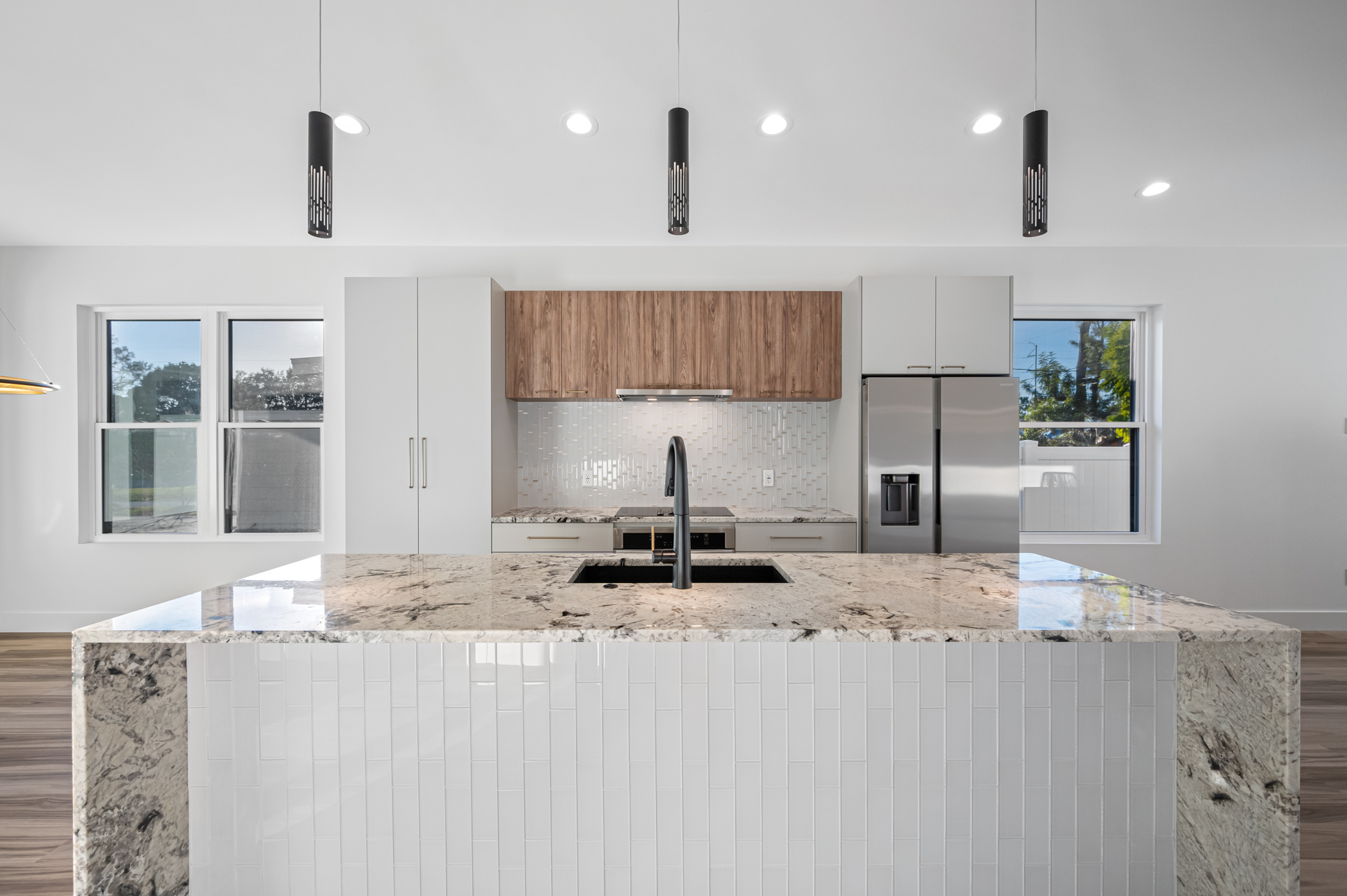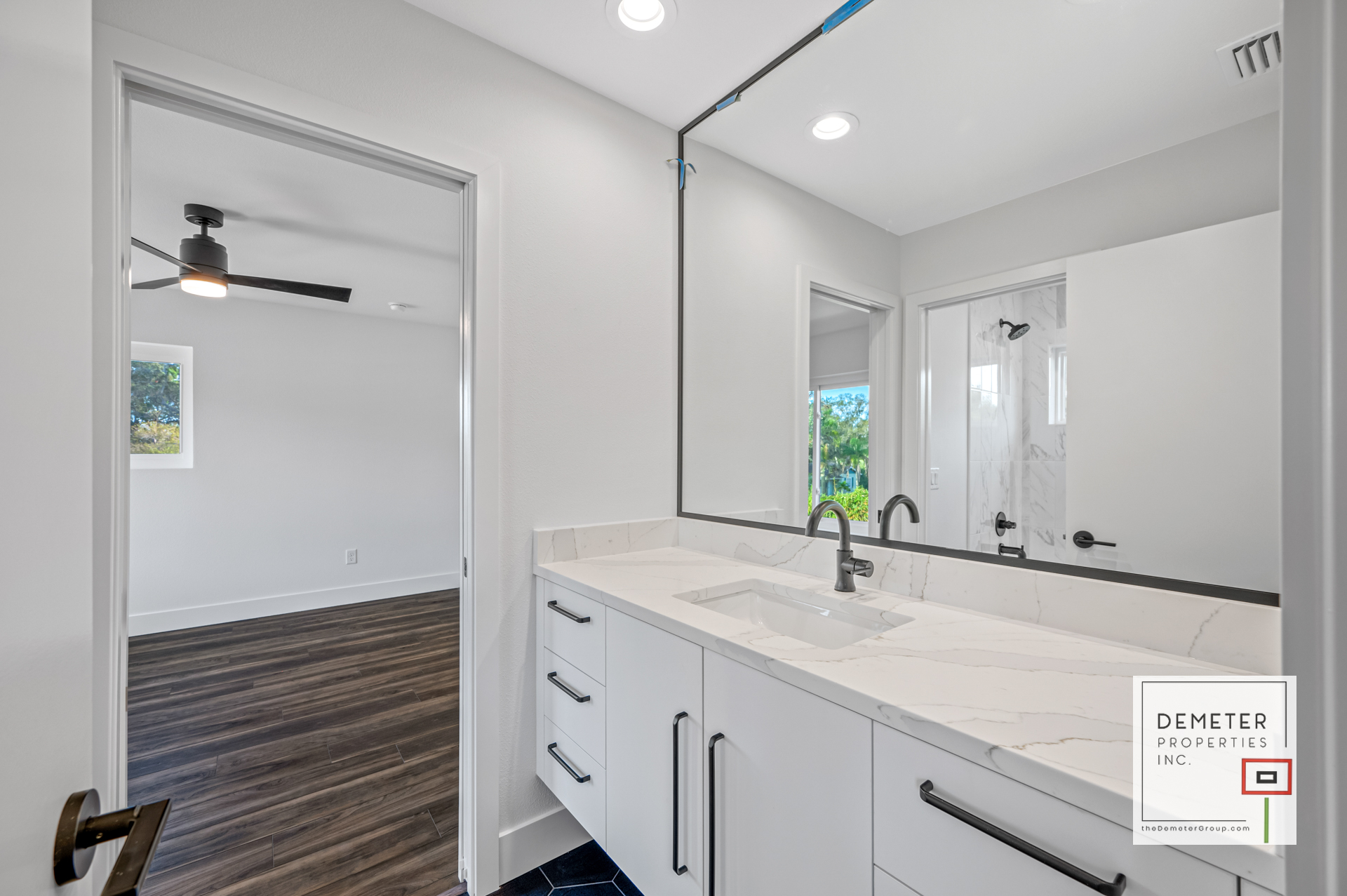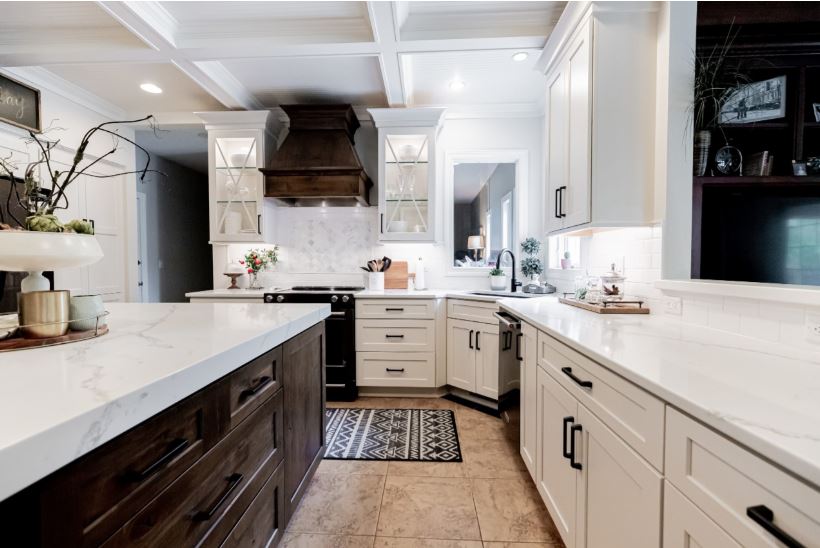Granite
By far the most popular option for countertops, granite is an incredibly beautiful and resilient natural stone. This material meets most everyone’s needs because of its durability and the large variety of style/color choices it provides. Granite quarries can be found all over the world and there are literally thousands of different types. One of the unique qualities of granite is that no two slabs are the same. Because of the way granite forms there are always variations in the “movement” or graining of slabs even when they come from the same quarry. This guarantees that every kitchen job is unique and “one-of-a-kind”.
Pros:
Heat Resistance: Granite is extremely resistant to heat and drastic temperature changes. It is perfectly acceptable to take dishes out of the oven or pots and pans off the stove and set them directly onto a granite countertop without fear of damaging the countertops.
Variation: We believe that the variation in granite adds to its unique beauty. Although, the fact is that no two slabs are exactly alike. If a consistent, uniform look is desired, engineered stone may be a more appropriate choice. However, at A+ Signature Design, customers pick out their very own slab from our warehouse so that they know exactly how their finished countertops will look.
Scratch Resistance: Granite is very hard and will never scratch or dent. With granite countertops the only reason to use a cutting board is to protect knives from dulling. Even a razor blade will not scratch the surface of a polished granite countertop.
Acid Resistance: Granite is completely resistant to acidic foods and is not susceptible to etching. There is no need to worry about spilling orange juice, lemon juice or any other acidic food or drink on these countertops.
Easy Cleaning: Granite is very easy to clean. All that is required is soapy water and rag to wipe it down.
Cons:
Maintenance: In our experience, not all granites require sealing. However, it is true that oily substances can sometimes soak into granite if allowed to puddle on the surface for an extended amount of time. To prevent anything from penetrating the surface of granite, an impregnating sealer can be easily applied once every few years. Granite sealers are applied with an easy wipe on-wipe off process that takes very little time.
Seams: Because Granite is a natural product and cannot be melted together like Corian, there will be seams where the separate countertop pieces come together. However, experienced granite fabricators and installers are very skilled at making seams inconspicuous through placement and the gluing process.
